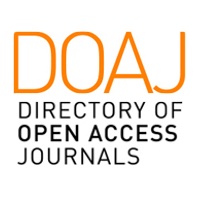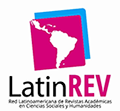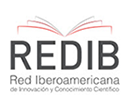Por uma nova epistemologia do ensino de filosofia no ensino médio: mediações sobre o cotidiano em Wittgenstein e em Deleuze
DOI:
https://doi.org/10.31639/rbpfp.v9i17.151Keywords:
Philosophy, Deleuze, WittgensteinAbstract
The present work has as scope the analysis of the educational scenario of Brazil, with emphasis on the formation of the professor of philosophy of High School. The act of teaching Philosophy requires an epis-temological shift, namely: the exercise of reconsideration of everyday life as a philosophical category, that is, the subjective capacity for openness to new situations, new worlds hitherto banished from the epis-temological discourse inherent in teaching, and consequently displacing The teachers of the pole of their epistemological certainties - that proposes the dogmatic prescription of the route of the right paths for a philosophy class - to the pole of the student of the high school that is unavailable for the philosophy. In this perspective, the student of the course in Philosophy must have clarity that in the classroom, at the juncture of his profession, only the heap of didactic theories and propositions will not suffice for the contribution of an effective learning of the Their future. And also, the pedagogical knowledge should not be separated from the philosophical knowledge, but complementary to each other in the daily life of the professor of philosophy. The problematic field, open to everyday life as a philosophical category in Wittgenstein and Deleuze, requires an investigation that leads us to the meaning it produces. A paradox is thus presented: the subject makes use of his past experiences both to produce and to organize events through a cause and effect relationship that fails to contain the whole universe of daily life, a necessary condition for adequate temporal experience , That is, an experience that brings to those who exercise it, a simultaneity of times for the production of meanings. Meaning, then, is the expressed event itself; it is the result of what is produced by the breaking of common sense, of metaphysical propositions, forcing a new signification of the possible, that is, every day as an event, which opens history and The epistemology sucking everything so that it revolves around itself, thus generating a new way of Teaching Philosophy.
Downloads
References
ALVES, Mauricio Silva.Reconsiderar as diferenças no cotidiano escolar: uma ontologia para o professor de filosofia presente? Revista Semana Acadêmica. Disponível em: <http://semanaacademica.org.br/> Acesso em 11 dez.2016.
BRASIL. Ministério da Educação. Secretaria de Educação Média e Tecnológica. Parâmetros Curriculares Nacionais: Ensino Médio. Brasília: MEC/SEMTEC, 2006.
BRASIL, Ministério da Educação. Secretaria de Educação Básica. OrientaçõesEducacionais Complementares aos Parâmetros Curriculares Nacionais. Ciências Humanas e suas Tecnologias. Brasília, DF, 2013. Disponível em:<<http://portal.mec.gov.br/seb/arquivos/pdf/CienciasHumanas.pdf>>. Acesso em: 10 out. 2016.
BRASIL, Governo Federal. Lei nº. 11.684, de 02 de junho de 2008. Altera art. 36 da Lei 9394-96, Lei de Diretrizes e Bases da Educação Nacional. Brasília, DF, 2008.
CAMPANER, S. Filosofia: Ensinar e Aprender – São Paulo: Livraria Saraiva. 2012.
CAVELL, Stanley. Esta América Nova, Ainda Inabordável: Palestras a partir de Emerson e Wittgenstein. São Paulo: Editora 34, 1997.
CERLETTI, Alejandro. O ensino de Filosofia como problema filosófico.São Paulo: Autêntica, 2004.
CHAUÍ, M. Prefácio. In: MARÇAL, Jairo. (Org.). Antologia de textos filosóficos. Paraná: SEED, 2009.
CIAMPA, A.C. Identidade. In.: LANE, S.T. & CODO, W. Org. Psicologia Social: O homem em movimento. 3ª ed. São Paulo: Brasiliense, 1985.
DELEUZE, Gilles. Lógica do Sentido. Perspectiva: São Paulo, SP, 1982.
HORN, G. B. Ensinar Filosofia: pressupostos teóricos e metodológicos. Ijuí: Unijuí, 2009.
MORAES, M. C. Recuo da teoria. In.: MORAES, M.C.M. (Org.). Iluminismo às Avessas: Produção do conhe-cimento e políticas de formação Docente. Rio de Janeiro: DP&A, 2003.
NÓVOA, A. Nada substitui um bom professor. In.: GATTI,B.A.(Org.). Por uma política nacional de formação de Professores,São Paulo: UNESP, 2013.
OLIVEIRA, B. A Prática social global como ponto de partida e de chegada para a prática educativa. IN.: OLIVEIRA, B. DUARTE, N. Socialização do saber escolar. 6ed. São Paulo, SP: Cortez: Autores Associados, 1992.
QUÉRÉ, Louis. Le caractere Impersonnel de l’expèrience. IN.: SIMPÓSIO DE COMUNICAÇÃO E EXPERIÊNCIA ESTÉTICA. 2, Belo Horizonte, MG. Fafich, UFMG, 2005.
SHULMAN, L.S. Knowledge and teaching: Fundations of the new reform 1987. IN.: SHULMAN, L.S. The wisdsom of pratice: essays on teaching and learning to teach. San Francisco, Jossey-Bass, 2004.
SHULMAN, L.SBThose who understand: Knowlwedge growth in teaching. Educacional, v 15, nº 2, 1986.
SHULMAN, L.S Communities of learners and communities of teachers. Jerusalém: Mandel Institute, 1997.
WITTGENSTEIN, L. Remarques Mêlées [no original Vermischte Bemerkungen]. Editado por G.H. von Wright. Tradução, apresentação e notas Gérard Granel e JeanPierre Cometti. Paris: Flammarion, 2002. Em português: Cultura e valor [do original Culture and Value]. Trad. Jorge Mendes. Lisboa: Edições 70, 2000.
WITTGENSTEIN L. Investigações Filosóficas. Lisboa: Fundação Calouste Gulberkian, 2002.
ZEICHNER, K. M. A formação Reflexiva de Professores: Ideias e Práticas. Lisboa: Educa, 1993.
ZEICHNER, K.; FLESSNER, R. Educando os professores para a Educação Crítica: Análise Internacional. Porto Alegre: Artmed, 2011.
Downloads
Published
How to Cite
Issue
Section
License
Copyright belongs exclusively to the authors. The license rights used by the journal are the Creative Commons Attribution-NonCommercial 4.0 International (CC BY-NC-SA 4.0) license: sharing (copying and distribution of material in any medium or format) and adaptation (remixing), transformation and creation of material from the content are allowed.































